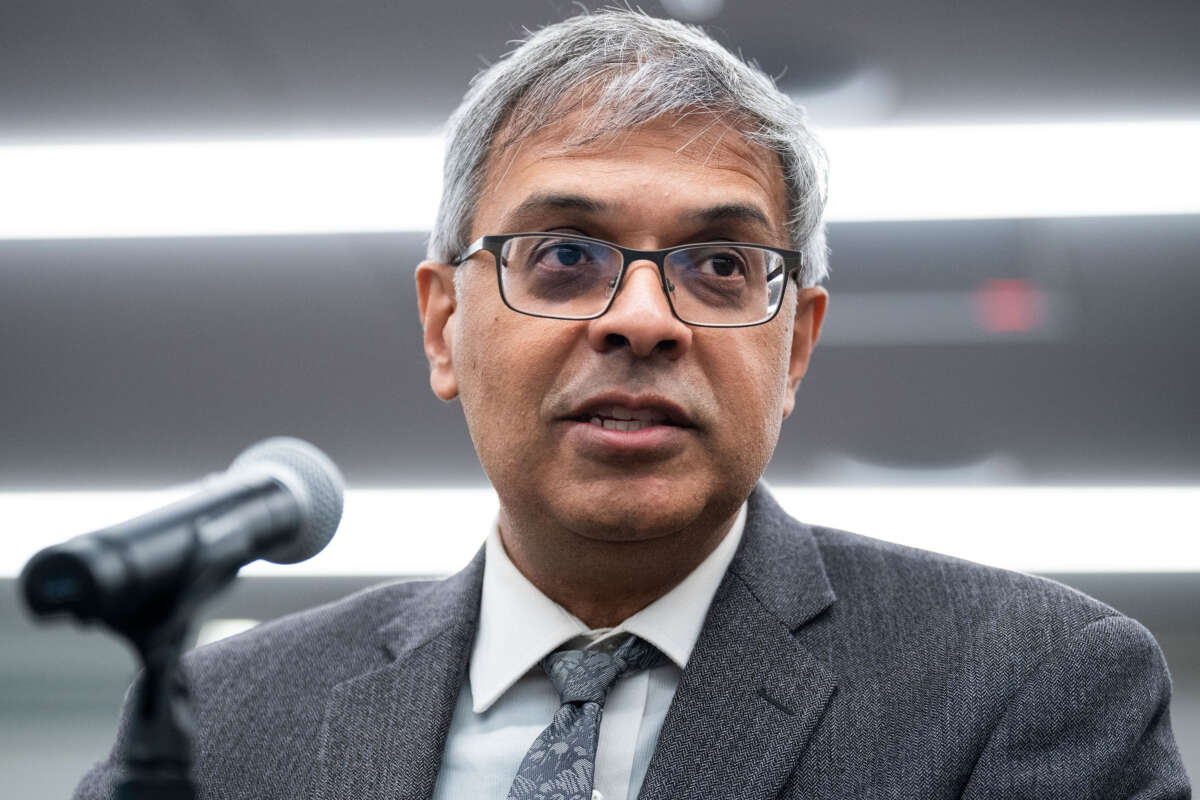President-elect Donald Trump has selected Jay Bhattacharya, a noted skeptic of stay-at-home orders and other measures to reduce the spread of COVID-19 during the height of the pandemic, to lead the National Institutes of Health (NIH).
In addition to his opposition to the stay-at-home orders (which were an effective initial response to quelling the spread of coronavirus), Bhattacharya also argued in favor of “natural” herd immunity before vaccines were available — a method where healthy people would have gone about their daily routines without care for the virus as a way to supposedly achieve immunity for themselves. Such actions would have inevitably led to more deaths, particularly among vulnerable populations.
When the pandemic was in its early months, Bhattacharya was deeply concerned with the negative mental and physical health impacts that stay-at-home orders would have on the U.S. populace. While those concerns were valid, they paled in comparison to the dangerous and oftentimes deadly results of individuals, communities and states flouting recommendations for social distancing.
Notably, Bhattacharya is an ally of Robert F. Kennedy Jr., Trump’s pick to oversee the Department of Health and Human Services, who is known for his opposition to vaccines.
“Together, Jay and RFK Jr. will restore the NIH to a Gold Standard of Medical Research as they examine the underlying causes of, and solutions to, America’s biggest Health challenges, including our Crisis of Chronic Illness and Disease,” Trump said in a statement announcing Bhattacharya’s nomination.
Trump’s and Bhattacharya’s views align when it comes to so-called herd immunity, which the president-elect repeatedly advocated for as a way to deal with COVID during the last year of his first term in office. But herd immunity would have been a disastrous way to deal with the virus.
In October 2020, when Trump himself contracted the coronavirus (and had access to best-in-class medical care), he still advocated for the idea. At that time, however, only 16 percent of the population had been exposed to the virus enough to have gained some immunity. At the same time, around 286,443 Americans had already died from COVID-19. To have reached the 90 percent threshold that most health experts agree is necessary to reduce the spread of viruses, many more — perhaps as many as 1.7 million Americans in total — would have had to die from COVID-19.
As it turned out, around 1.1 million people in the U.S. did end up dying from coronavirus during the pandemic — however, the failures of the U.S. health care system and Trump’s baseless recommendations on lessening the spread likely led to the death rate in the U.S. being 40 percent higher than it might have been under different circumstances (per a study published in The Lancet in February 2021). Indeed, the country’s excess mortality rate was much higher than other wealthy nations across the globe, likely for those very reasons.
Many health experts criticized the choice of Bhattacharya to lead NIH.
“I don’t think that Jay Bhattacharya belongs anywhere near the NIH, much less in the director’s office,” virologist Angela Rasmussen told NPR. “That would be absolutely disastrous for the health and well-being of the American public and actually the world.”
“What I worry about is that if somebody like Jay Bhattacharya comes in to ‘shake up’ the NIH, they’re going to dismantle the NIH and prevent it from actually doing its job rather than just carry out constructive reforms,” Rasmussen added.
“Jay Bhattacharya might just be Donald Trump’s most extreme pick,” public health journalist Walker Bragman wrote on Bluesky.
Angry, shocked, overwhelmed? Take action: Support independent media.
We’ve borne witness to a chaotic first few months in Trump’s presidency.
Over the last months, each executive order has delivered shock and bewilderment — a core part of a strategy to make the right-wing turn feel inevitable and overwhelming. But, as organizer Sandra Avalos implored us to remember in Truthout last November, “Together, we are more powerful than Trump.”
Indeed, the Trump administration is pushing through executive orders, but — as we’ve reported at Truthout — many are in legal limbo and face court challenges from unions and civil rights groups. Efforts to quash anti-racist teaching and DEI programs are stalled by education faculty, staff, and students refusing to comply. And communities across the country are coming together to raise the alarm on ICE raids, inform neighbors of their civil rights, and protect each other in moving shows of solidarity.
It will be a long fight ahead. And as nonprofit movement media, Truthout plans to be there documenting and uplifting resistance.
As we undertake this life-sustaining work, we appeal for your support. Please, if you find value in what we do, join our community of sustainers by making a monthly or one-time gift.
